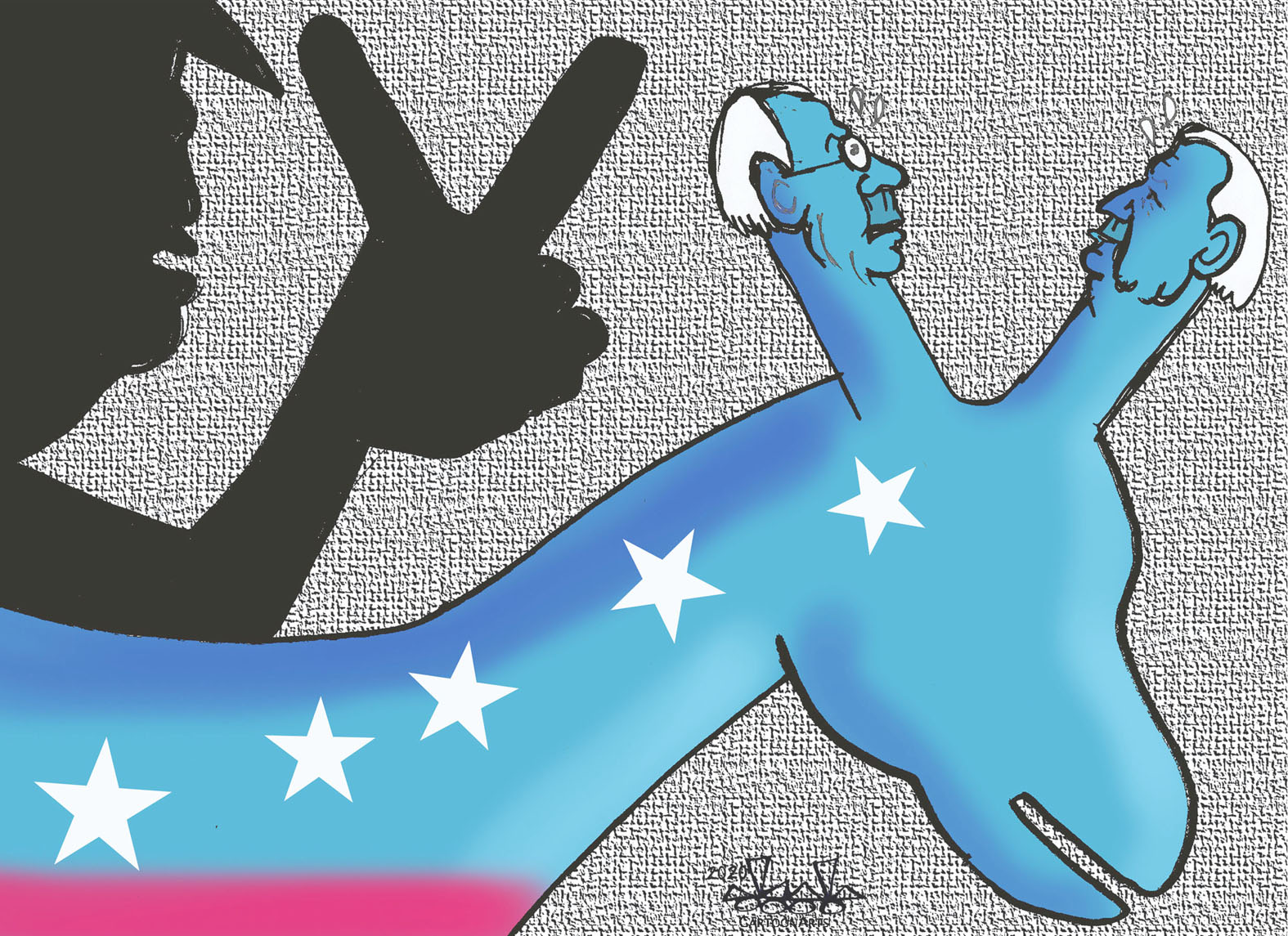Thanks to his strong showing so far in the Democratic primaries, U.S. Senator Bernie Sanders is one of the front-runners for the party's nomination to face President Donald Trump in November. If Sanders does end up as the Democrats' standard-bearer, this year's presidential election will be a choice between his left-wing brand of populism and the right-wing variety espoused by Trump.
For Japan, the potential implications of such a contest could be huge. Since taking office, Trump has consistently shunned multilateralism and pursued a divisive domestic agenda that is contributing to a further hardening of partisan attitudes in the United States. Sanders, meanwhile, seems to share Trump's protectionist instincts regarding trade.
Japanese political and business leaders are especially concerned by the decoupling of economic ties between America and China, the country's two biggest trading partners. A breakdown in U.S.-China trade relations, or a proliferation of protectionist measures around the world, would disrupt global supply chains and could have a devastating impact on Japan's economy, the world's third-largest. On China, Democrats don't appear overwhelmingly different from Trump and the Republicans.


















With your current subscription plan you can comment on stories. However, before writing your first comment, please create a display name in the Profile section of your subscriber account page.